CHIPS and Science Act
July 28, 2022 | H. R. 4346
The CHIPS and Science Act will boost American semiconductor research, development, and production, ensuring U.S. leadership in the technology that forms the foundation of everything from automobiles to household appliances to defense systems. Additionally, the law will also ensure the United States maintains and advances its scientific and technological edge.
The CHIPS and Science Act will:
- Bolster U.S. leadership in semiconductors. The CHIPS and Science Act provides $52.7 billion for American semiconductor research, development, manufacturing, and workforce development.
- It also provides a 25 percent investment tax credit for capital expenses for manufacturing of semiconductors and related equipment. These incentives will secure domestic supply, create tens of thousands of good-paying, union construction jobs and thousands more high-skilled manufacturing jobs, and catalyze hundreds of billions more in private investment.
The bill requires recipients to demonstrate significant worker and community investments, including opportunities for small businesses and disadvantaged communities, ensuring semiconductor incentives support equitable economic growth and development.
These funds also come with strong guardrails, ensuring that recipients do not build certain facilities in China and other countries of concern, and preventing companies from using taxpayer funds for stock buybacks and shareholder dividends. It will also support good-paying, union construction jobs by requiring Davis-Bacon prevailing wage rates for facilities built with CHIPS funding.
- Promote U.S. innovation in wireless supply chains. The law includes $1.5 billion for promoting and deploying wireless technologies that use open and interoperable radio access networks. This investment will boost U.S. leadership in wireless technologies and their supply chains.
The CHIPS and Science Act will establish a technology, innovation, and partnerships directorate at the National Science Foundation (NSF) to focus on fields like semiconductors and advanced computing, advanced communications technology, advanced energy technologies, quantum information technologies, and biotechnology. It will strengthen commercialization of research and technology, ensuring that what is invented in America is made in America.
The Act will also reauthorize and expand fundamental and use-inspired research at the Department of Energy Office of Science and the National Institute of Standards and Technology to sustain U.S. leadership in the sciences and engineering as the engine for American innovation.
- Catalyze regional economic growth and development. The CHIPS and Science Act authorizes $10 billion to invest in regional innovation and technology hubs across the country, bringing together state and local governments, institutes of higher education, labor unions, businesses, and community-based organizations to create regional partnerships to develop technology, innovation, and manufacturing sectors.
These hubs will create jobs, spur regional economic development, and position communities throughout the country to lead in high-growth, high-wage sectors such as artificial intelligence, advanced manufacturing, and clean energy technology. It also authorizes a $1 billion RECOMPETE pilot program at the Department of Commerce’s Economic Development Administration (EDA) to alleviate persistent economic distress and support long-term comprehensive economic development and job creation in the most distressed communities.
- Provide STEM opportunities to more of America to participate in good-paying skilled jobs. To ensure more people from all backgrounds and all regions and communities around the country, especially people from marginalized, under-served, and under-resourced communities, can benefit from and participate in STEM education and training opportunities, the CHIPS and Science Act authorizes new and expanded investments in STEM education and training from K-12 to community college, undergraduate and graduate education.
This is Good for working people.
Vote result:
Passed
| Legislator Sort ascending | State | District | Party | Vote | |
|---|---|---|---|---|---|

|
Rep. Lee Zeldin | NY | 1 |  Republican
Republican
|
No |

|
Rep. John Yarmuth | KY | 3 |  Democrat
Democrat
|
Yes |

|
Rep. Steve Womack | AR | 3 |  Republican
Republican
|
No |

|
Rep. Robert J. Wittman | VA | 1 |  Republican
Republican
|
No |

|
Rep. Joe Wilson | SC | 2 |  Republican
Republican
|
No |

|
Rep. Frederica Wilson | FL | 24 |  Democrat
Democrat
|
Yes |
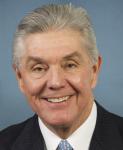
|
Rep. Roger Williams | TX | 25 |  Republican
Republican
|
No |
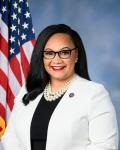
|
Rep. Nikema Williams | GA | 5 |  Democrat
Democrat
|
Yes |

|
Rep. Susan Wild | PA | 7 |  Democrat
Democrat
|
Yes |
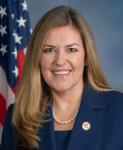
|
Rep. Jennifer Wexton | VA | 10 |  Democrat
Democrat
|
Yes |
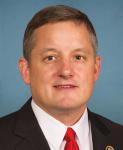
|
Rep. Bruce Westerman | AR | 4 |  Republican
Republican
|
No |
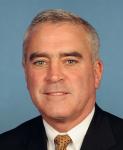
|
Rep. Brad Wenstrup | OH | 2 |  Republican
Republican
|
No |

|
Sen. Peter Welch | VT |  Democrat
Democrat
|
Yes | |

|
Rep. Daniel Webster | FL | 11 |  Republican
Republican
|
No |

|
Rep. Randy Weber | TX | 14 |  Republican
Republican
|
No |

|
Rep. Bonnie Watson Coleman | NJ | 12 |  Democrat
Democrat
|
Yes |

|
Rep. Maxine Waters | CA | 43 |  Democrat
Democrat
|
Yes |

|
Rep. Debbie Wasserman Schultz | FL | 25 |  Democrat
Democrat
|
Yes |
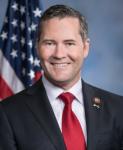
|
Rep. Michael Waltz | FL | 6 |  Republican
Republican
|
No |

|
Rep. Jackie Walorski | IN | 2 |  Republican
Republican
|
No |
- Confirmation of Janet Yellen as the Secretary of the Department of Treasury
- Freedom to Vote: John R. Lewis Act
- NLRB Joint Employer Congressional Review Act
- Ending Forced Arbitration of Sexual Assault and Sexual Harassment Act
- Equality Act
- Protecting the Right to Organize Act - Motion to Recommit
- American Rescue Plan Act
- Protecting the Right to Organize Act
- For the People Act
- Protecting the Right to Organize Act
- Raise the Wage Act
- Families First Coronavirus Response Act
- Expanding Access to Capital Act
- CARES Act
- Confirmation of Nicole Berner to U.S. Circuit Judge for the Fourth Circuit
- Families First Coronavirus Response Act
- Paycheck Fairness Act
- American Rescue Plan Act
- For the People Act
- Congressional Review Act
- Confirmation of Katherine Tai as the United States Trade Representative
- Confirmation of Marty Walsh as the Secretary of the Department of Labor
- Confirmation of Ketanji Brown Jackson to Associate Justice of the Supreme Court
- Paycheck Fairness Act
- Congressional Review Act
- Default on America Act
- Confirmation of Gwynne A. Wilcox to the National Labor Relations Board
- Equality Act
- Paycheck Fairness Act
- For the People Act
- John Lewis Voting Rights Advancement Act
- CHIPS and Science Act
- Confirmation of Jennifer Abruzzo as NLBR General Counsel
- Confirmation of Gwynne Wilcox as Member of the NLRB
- Confirmation of David Prouty as Member of the NLRB
- Infrastructure Investment and Jobs Act (IIJA)
- Inflation Reduction Act
- DISCLOSE Act
- DISCLOSE Act
- Infrastructure Investment and Jobs Act (IIJA)
- Build Back Better Act (BBB)
- CHIPS and Science Act
- Inflation Reduction Act
- CARES Act